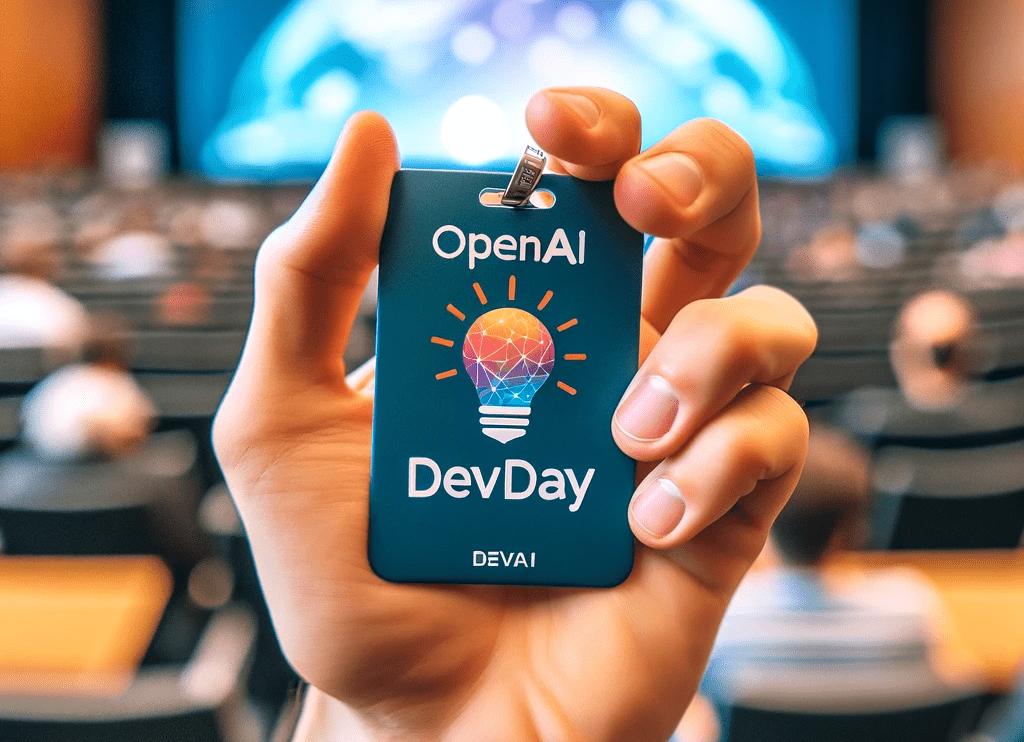At its first developer conference in San Francisco on Monday, OpenAI unveiled a series of updates to its artificial intelligence tools, including the ability for developers to create custom versions of ChatGPT.

GPT-4 Turbo
The company is also launching a digital store and reducing base prices for developers while committing to paying some who use OpenAI products on its platforms.
This comes nearly a year after ChatGPT's launch, which renewed an arms race among tech companies to develop and deploy similar AI tools in their products. CEO Sam Altman said 2 million developers now use the platform, and about 901 Fortune 500 companies use the tools internally. It currently has 100 million active users.
Microsoft CEO Satya Nadella, an early OpenAI partner, joined Altman on stage to discuss how his company continues to integrate GPT technology into its 365 suite of tools. "It's so different and new," he said. "I've been in the infrastructure business for three decades - and I've never seen anything like this."
Among the most significant changes announced is the introduction of custom GPTs, or personalized versions of ChatGPT. Similar to plug-ins, GPTs can connect to databases, be used in e-mails or facilitate e-commerce orders, the company said. On its websiteShe says GPTs could be used to help tutor math, train for a marathon or design stickers, without any prior coding experience. Users can try it out via chatgpt.com/create.
“Creating a GPT is as simple as starting a conversation, giving it instructions and additional knowledge, and choosing what it can do, such as search the web, create images, or analyze data,” the company said in a blog post.
A digital ecosystem
In the coming weeks, these AI agents, which OpenAI calls GPTs, will be accessible via the GPT Store. Details regarding the store's appearance and functionality remain limited for now, but OpenAI promises to compensate creators based on the use of their GPTs, though the amount is not yet specified. GPTs will be available to paid subscribers of ChatGPT Plus and OpenAI's enterprise customers, who will be able to create GPTs for internal use by their employees.
Custom GPTs were announced on Monday at DevDay, OpenAI's first developer conference in San Francisco. The company also announced an improved, cheaper version of GPT-4, lower prices for developers using its templates in their applications, and revealed that ChatGPT has reached an impressive 100 million weekly users.
Similar to other app stores, they will be listed on a leaderboard, and the company will highlight useful tools in categories such as productivity, education and "just for fun". The company has stated that developers will also be able to earn money based on the number of people using their GPT.
Altman also presented GPT-4 Turbo, the latest version of the technology that powers ChatGPT. He said it can now handle input equivalent to around 300 pages of a standard book, some 16 times more than the previous iteration.
The platform will also have expanded knowledge until April 2023 "and will continue to improve over time," Altman added. "We're just as annoyed as all of you, probably more, that GPT's knowledge of the world has stopped in 2021," he added.
The company also said it was reducing the price for developers, to 0.01 $ per 1,000 input tokens, which is around three times cheaper than GPT-4. This will enable developers to save on overall costs when running large volumes of information through its systems.
Other software enhancements include more modalities, such as improved text-to-speech with more natural-sounding audio and a choice of six predefined voices.
Enhanced confidentiality
Altman said OpenAI also strengthens security and privacy, noting that discussions with the tools are not shared with manufacturers.
The company has also introduced Copyright Shield, which will enable OpenAI to intervene and defend customers - and pay any costs incurred - if copyright infringement becomes an issue. Competitors such as Google and Adobe have adopted a similar approach.
"Price and performance improvements, model customization and legal compensation will have a more immediate impact as these capabilities have been sought by developers for some time now," said Arun Chandrasekaran, analyst at Gartner Research. "Autonomous agents will take longer to create an impact but are bold steps forward for the future of generative AI."
Meanwhile, OpenAI has stressed that the latest announcements are only part of what's still to come.
"GPTs will continue to get more useful and smarter, and eventually you'll be able to let them take on real tasks in the real world," the company said in the blog post. "We think it's important to move toward this future in stages, as it will require careful technical and security work - and time for society to adapt. We've been thinking deeply about the societal implications and will soon have more analysis to share."
